Hair loss is a frequent disease that affects both men and women. Genetics, hormone problems, starvation, and stress are a few of the factors that might cause hair loss. The usage of vitamins such as biotin and collagen as potential hair loss remedies has grown in favor in recent years. This study investigates the efficacy of biotin and collagen in stimulating hair growth and resolving hair loss issues.
Table of Contents
- Introduction: Understanding Hair Loss
- The Role of Biotin in Hair Health
- Can Biotin Prevent Hair Loss?
- Biotin Dosage and Safety
- The Relationship between Collagen and Hair Growth
- Collagen’s Impact on Hair Loss
- How to Incorporate Biotin and Collagen into Your Hair Care Routine
- Other Nutritional Factors for Healthy Hair
- Lifestyle Changes for Hair Loss Prevention
- Debunking Myths about Hair Loss
- Conclusion
- FAQs (Frequently Asked Questions)
INTRODUCTION: UNDERSTANDING HAIR LOSS
Partial or complete hair loss on the scalp or body is a symptom of the medical condition of alopecia. It significantly affects one’s confidence and sense of self. Hair loss is a normal component of the hair development cycle, but it can be distressing if it is excessive or early.
The Role of Biotin in Hair Health
The water-soluble vitamin biotin, often known as vitamin B7, is crucial for keeping healthy hair. Understanding the role of biotin in hair health can shed light on its potential benefits for promoting strong and vibrant hair.
1. Keratin Production:
Keratin, a protein that forms the structural framework for hair, skin, and nails, needs biotin to form. Adequate biotin levels ensure the availability of the necessary building blocks for keratin production, contributing to healthy hair growth.
2. Hair Strength and Elasticity:
Biotin supports the maintenance of strong and elastic hair strands. It helps improve the infrastructure of the hair cortex, which is responsible for the hair’s strength and flexibility. Stronger hair strands are less prone to breakage, promoting overall hair health.
3. Hair Growth:
Biotin is involved in the process of cell proliferation, which includes the cells in hair follicles. Healthy hair follicles are crucial for promoting optimal hair growth. Biotin helps new hair follicles grow and develop, which results in thicker, fuller hair.
4. Scalp Health:
A healthy scalp is necessary for healthy hair growth, and biotin helps preserve that health. Fatty acids that nourish and moisturize the scalp are produced with its assistance. A well-nourished scalp creates a favorable environment for hair follicles to thrive.
5. Preventing Hair Loss:
Biotin deficiency has been associated with hair loss, as insufficient levels of biotin can disrupt normal hair growth cycles. Ensuring an adequate intake of biotin through diet or supplementation can help prevent hair loss caused by biotin deficiency.
Biotin Supplementation for Hair Health
Biotin supplementation is commonly considered a potential remedy for hair loss or promoting hair growth. It’s crucial to remember that the effectiveness of biotin and collagen supplementation might change based on both individual characteristics and the underlying causes of hair loss.
While a biotin deficit might cause hair loss, confirming this is the major cause before beginning supplementation is important. Consulting with a healthcare professional or a qualified trichologist can help identify any underlying deficiencies or conditions and guide appropriate treatment.
Furthermore, it’s worth mentioning that biotin supplementation may not significantly influence hair health in people who already have adequate biotin levels. In such cases, focusing on a balanced diet that includes biotin-rich foods may be sufficient to maintain optimal biotin levels and support hair health.
Biotin-Rich Foods
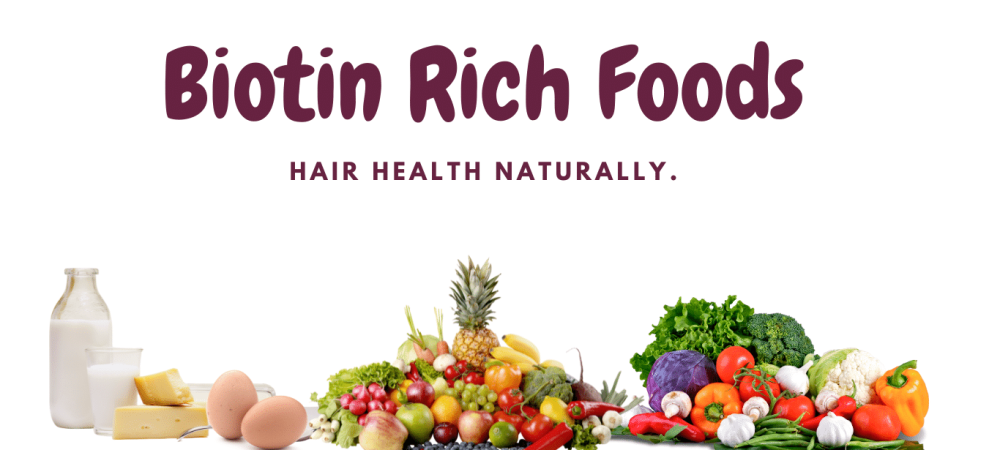
Incorporating biotin-rich foods into your diet is an excellent way to support hair health naturally. Some foods that are good sources of biotin include:
– Eggs
– Walnuts, Almonds, and sunflower seeds are examples of nuts and seeds.
– Peas, beans, and other legumes like lentils and chickpeas.
– Dairy goods (like cheese and milk)
– Whole grains (such as oats and brown rice)
– Meat and poultry (such as chicken and beef liver)
– Green leafy vegetables (such as spinach and kale)
Including these foods in your meals can provide you with a natural source of biotin and contribute to overall hair health.
Also Read: 5 Natural Rich Sources of Biotin Need to Know
Can Biotin Prevent Hair Loss?
Many people worry about their hair falling out, and numerous treatments and therapies are on the market. A water-soluble B vitamin called biotin is frequently promoted as a potential treatment for hair loss and hair growth. But what actually underlies the assertions? Does biotin effectively stop hair loss?
Understanding Hair Loss:
Understanding the many types and reasons for hair loss is crucial before we examine how biotin can stop hair loss. Some factors contributing to hair loss include genetics, hormonal issues, dietary inadequacies, stress, and particular medical conditions. It’s a complicated problem with several potential underlying causes, and the appropriate course of treatment will depend on the cause in question.
The Role of Biotin:
The metabolism of proteins, carbohydrates, and fats—all vital for maintaining general health, including the health of our hair—involves biotin. It is essential for maintaining strong hair follicles, encouraging keratin production, and fostering hair growth. Lack of biotin has been related to brittle nails, thinning hair, and hair loss.
Biotin and Biotin Deficiency:
While a biotin shortage might result in hair loss, it’s crucial to remember that it’s unusual, especially in people who follow a balanced diet. Eggs, nuts, seeds, meat, fish, and vegetables are all organic sources of the vitamin biotin.
The majority of people get enough biotin from their usual diet. However, pregnancy, some medicines, and certain medical conditions can increase the risk of biotin deficiency.
Biotin and collagen supplementation may help improve hair health and prevent further hair loss for individuals with diagnosed biotin deficiency. However, for individuals with normal biotin levels, supplementation may not have a significant impact on hair loss prevention.
The Importance of Proper Diagnosis:
It’s crucial to consult with a healthcare professional or a qualified trichologist if you are experiencing hair loss. They can assist you in determining the underlying reason for your hair loss and developing a customized treatment plan. Biotin supplementation may be recommended if a biotin deficiency is identified through proper diagnosis and testing.
Comprehensive Hair Care Approach:
Preventing hair loss and promoting healthy hair growth requires a comprehensive approach. While biotin may have a role to play in maintaining hair health, it is not a standalone solution. A comprehensive approach to hair health that includes a balanced diet, effective hair care practices, stress management, and addressing any underlying health issues is critical.
Also Read: Liquid Biotin with Collagen: A boon or bane for Hair?
Summary:
Only those who are deficient in biotin can take biotin and collagen supplements to reduce hair loss, even though it helps keep hair healthy. A comprehensive approach, including proper diagnosis, a balanced diet, and holistic hair care, is necessary for effective hair loss prevention.
Biotin Dosage and Safety
When considering the use of biotin supplements for hair health, it’s essential to understand the recommended dosage and ensure its safe usage.
Recommended Biotin Dosage:
An adult’s daily Biotin consumption should be between 30 and 100 micrograms (mcg). Under the supervision of a healthcare practitioner, greater doses, such as 2,500 to 5,000 mcg, are occasionally used for people with particular diseases or deficits.
Safety Considerations:
When used according to the suggested dosage range, biotin is usually regarded as safe. Given that it is a water-soluble vitamin, extra levels are normally eliminated in the urine. However, it’s crucial to adhere to the advised amount and avoid overindulging because excessively high dosages of biotin may have unfavorable effects.
Potential Interactions:
Medications to control cholesterol levels or anticonvulsants to treat epilepsy may interact with biotin supplements. To rule out any potential interactions or harmful effects, you must inform your doctor about all medications you are currently taking.
Side Effects:
Supplements containing biotin are typically tolerated well and rarely cause negative effects. However, a few people could develop minor adverse effects like gastrointestinal problems, nausea, or skin rashes. After starting a biotin supplement, it is advised to stop taking it and seek medical advice if you encounter any alarming symptoms.
Summary: While biotin and collagen supplements can benefit people with a biotin shortage, most people get enough biotin from their diet. It is always preferable to prioritize a well-balanced diet high in biotin-rich foods over relying entirely on pills.
The Relationship between Collagen and Hair Growth
A protein found in abundance in the body called collagen is essential for many bodily functions, including hair development and maintenance. Understanding the relationship between collagen and hair growth can provide insights into how collagen supplementation may impact hair health.
Structural Support: Collagen is a vital structural component in the body, providing strength and support to various tissues, including the hair follicles. Hair follicles are tiny structures in the scalp from which individual hair strands grow. Collagen helps maintain the integrity and structure of the hair follicles, supporting healthy hair growth.
Hair Follicle Function: Collagen contributes to the proper functioning of hair follicles. It helps regulate the production of sebum, a natural oil that moisturizes and protects the scalp and hair. By maintaining a healthy balance of sebum production, collagen supports a conducive environment for hair growth.
Protein Building Blocks: Amino acids, the fundamental components of proteins, are what make up collagen. Keratin, a type of protein, accounts for the bulk of hair. Adequate collagen levels guarantee the availability of the amino acids required for the synthesis of keratin, enabling strong and healthy hair development.
Antioxidant Properties: Antioxidant properties of collagen aid in defending hair follicles from harm from dangerous free radicals. Free radicals can lead to oxidative stress and contribute to hair loss. By neutralizing these free radicals, collagen helps maintain a healthy environment for hair growth.
Collagen’s Impact on Hair Loss
While collagen is necessary for healthy hair overall, it’s crucial to remember that using collagen supplements may not fully stop hair loss or significantly increase hair growth. Numerous underlying factors can contribute to hair loss, including hormone imbalances, genetics, nutritional inadequacies, and certain medical diseases. As a result, successful treatment requires addressing the underlying causes of hair loss.
However, incorporating collagen into a comprehensive hair care routine and other supportive measures may contribute to healthier and stronger hair. Collagen supplements can be part of a holistic approach that includes a balanced diet, proper hair care practices, and addressing any underlying health issues.
How to Incorporate Collagen into Your Hair Care Routine
If you’re considering doing so, the following suggestions can help you include collagen into your hair care routine:
Collagen Supplements:
Collagen supplements are available in powder, capsules, and liquid formulations. Follow the recommended dosage instructions provided by the manufacturer or consult with a healthcare professional for personalized guidance.
Hair Care Products:
Look for hair care products containing Biotin and collagen or specifically formulated to support hair health. These products can help nourish and strengthen the hair strands, promoting resilience and minimizing damage.
Collagen-Rich Foods:
Consuming naturally rich foods in collagen can also support hair health. Bone broth, fish, lean meats, poultry, eggs, and some fruits and vegetables are examples of these. Incorporating these foods into your diet can provide additional nutrients that contribute to optimal hair growth.
While collagen can be beneficial for hair health, it’s essential to adopt a comprehensive approach that considers overall nutrition, lifestyle factors, and proper hair care practices for optimal results.
Other Nutritional Factors for Healthy Hair
Biotin and Collagen are frequently recognized for their role in boosting hair health; it’s vital to keep in mind that for general hair health, a balanced and healthy diet is needed. Several other nutrients play a significant role in maintaining healthy hair. Let’s explore some of these key nutritional factors:
Iron:
Iron deficiency can lead to hair loss and thinning. Increase your intake of iron-rich foods, including red meat, spinach, kale, lentils, and fortified cereals, to support optimal iron levels and encourage healthy hair development.
B vitamins:
Healthy hair requires biotin as well as the B vitamins niacin (B3), pantothenic acid (B5), and cobalamin (B12). Incorporate whole grains, eggs, meat, fish, and dairy products into your diet to ensure an adequate intake of B vitamins.
Water:
Staying hydrated is crucial for maintaining optimal hair health. Water helps in keeping the scalp and hair hydrated, preventing dryness and promoting overall hair health. Make sure you consume enough water each day.
Zinc:
Zinc is necessary for the growth and repair of hair tissue. Oysters, beef, pumpkin seeds, lentils, and chickpeas are good dietary sources of zinc that can contribute to healthy hair.
Vitamin E:
Protecting the hair follicles from oxidative damage is made easier by the antioxidant vitamin E. Sunflower, almonds, seeds, spinach, and avocados are high in vitamin E.
Protein:
Because keratin, the main component of hair, is a protein, eating enough protein is essential for good hair growth. Include lean meats, fish, poultry, seeds, dairy products, legumes, nuts, and eggs in your diet to ensure enough protein consumption.
Also Read: Is Biotin with Collagen a good combination?
Lifestyle Changes for Hair Loss Prevention
In addition to nutritional variables, you may include a number of lifestyle adjustments into your daily routine to help prevent hair loss and boost overall hair health.
Stress Management: High stress can lead to hair loss. Stress-reducing techniques like meditation, yoga, regular exercise, or pursuing a hobby can help you manage stress and promote healthy hair growth.
Good Hair Hygiene: Maintaining a healthy scalp and avoiding disorders that can contribute to hair loss requires good hair cleanliness. This entails frequently washing your hair with a gentle cleanser appropriate for your hair type, refraining from overusing styling products, and ensuring your scalp is clean and buildup-free.
Gentle Styling Practices: Excessive heat styling, tight hairstyles, and using harsh hair accessories can damage the hair shaft and lead to hair breakage. Opt for gentle styling techniques, avoid excessive heat, and use hair-friendly accessories like snag-free hair ties and wide-toothed combs.
Protecting Your Hair: Protecting hair from excessive sun exposure, extreme weather conditions, and pollution can help maintain hair health. Consider wearing a hat or using protective hair products when exposed to the sun, and avoid exposing your hair to extreme temperatures or environmental pollutants.
Avoiding Smoking: Smoking has been linked to increased hair loss and premature graying. Quitting smoking favors your hair’s health and beauty in addition to your general health.
Debunking Myths about Hair Loss
There are numerous myths and misconceptions surrounding hair loss that can cause confusion.
Wearing Hats Causes Hair Loss:
Wearing hats does not directly cause hair loss. However, wearing excessively tight hats for extended periods may contribute to hair breakage. It’s essential to wear hats that fit comfortably and allow proper airflow to the scalp.
Hair Loss Is Only Determined by Your Mother’s Side of the Family:
Hair loss can be influenced by a combination of genetic factors from both sides of your family. While some genes inherited from the mother can contribute to hair loss, other factors such as hormonal imbalances, malnutrition, and environmental factors also play a role.
Frequent Shampooing Leads to Hair Loss:
Washing your hair regularly with a suitable shampoo does not cause hair loss. In fact, keeping your scalp clean and free from excess oil, dirt, and product buildup promotes a healthy environment for hair growth. Use a gentle shampoo and conditioner that suits your hair type and avoid excessive scrubbing.
Conclusion
Biotin and collagen are often hailed as potential solutions for hair loss. While they play important roles in maintaining healthy hair, their effectiveness in reversing hair loss or stimulating substantial hair growth is not fully supported by scientific evidence. It’s crucial to treat hair loss holistically, taking into account different aspects like diet, way of life, and hair care routines.

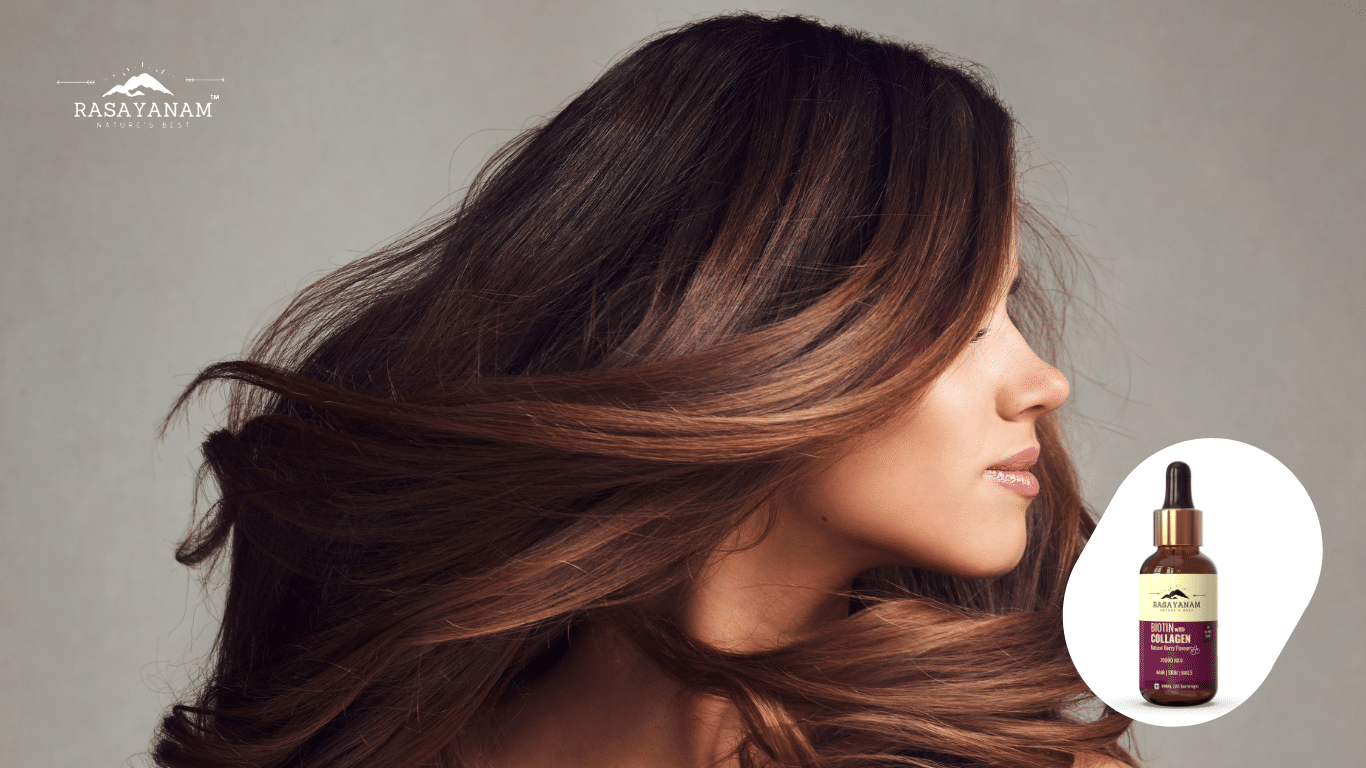



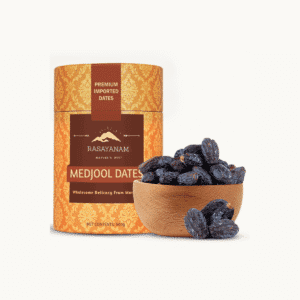
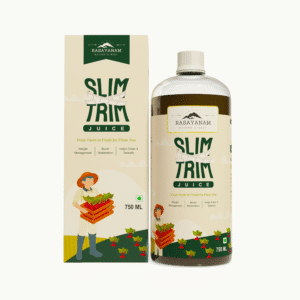
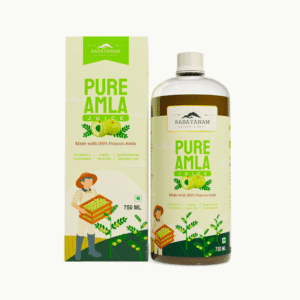
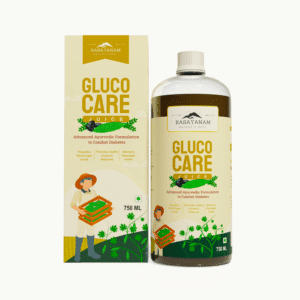
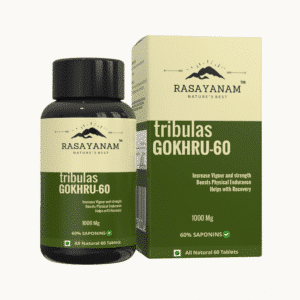
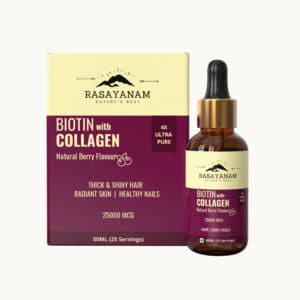
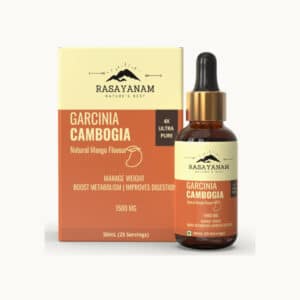

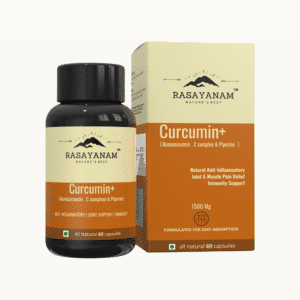
One Response